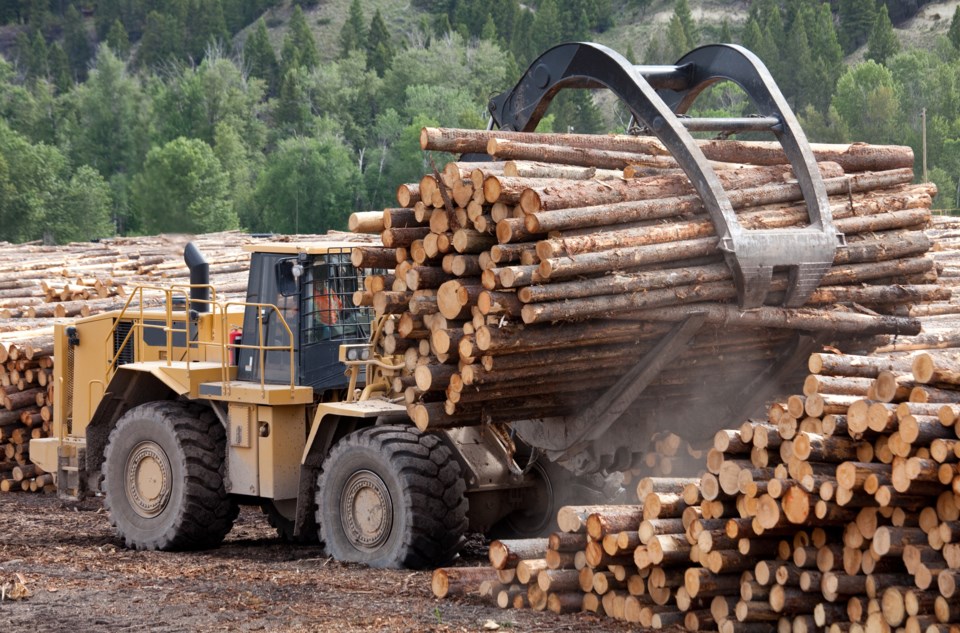Stocks in B.C.’s three major publicly traded forestry companies were predictably down this morning, when stock markets opened after this weekend’s declaration of a trade war between the U.S., Canada and Mexico.
U.S. stock markets were jolted, too, Monday morning, as was the S&P TSX composite Index. The Canadian dollar fell to $0.68 to the American dollar following Saturday’s confirmation that Trump will hit Canadian imports with 25 per cent tariffs, and 10 per cent tariffs on Canadian energy imports, beginning Tuesday.
North American stocks fell sharply in early morning trading before recovering somewhat.
Canadian companies that are highly exposed to the U.S. were jolted, with companies like West Fraser Timber (TSX:WFG), Canfor Corp (TSX:CFP) and Interfor Corp. (TSX:IFP) experiencing early morning drops of four, five and six per cent respectively, before correcting somewhat later in the morning.
Teck Resources (TSX,NYSE:TECK) stock was down 2.7 per cent in early morning trading, but has since recovered somewhat.
In a pre-emptive move, Taseko Mines Limited (TSX:TKO, NYSE: TGB; LSE: TKO) issued a press release stating the new tariffs will have no impact on Taseko’s copper and moly sales from its Gibraltar mine in B.C.
“The mine produces copper and molybdenum concentrates that are sold to international metal traders and delivered to Asian markets,” the company said. “Offtake contracts are in place for 100 per cent of copper concentrate production through the end of 2026, and no changes to these sales channels are expected during this period.”
Nor are the tariffs expected to impact the new copper mine it is building in Arizona – the Florence mine.
“Although these new tariffs will not directly impact our business, as a North America-focused copper producer we are hopeful that a more constructive trade relationship will emerge for copper and other critical minerals, for the benefit of both Canada and the United States,” said Taseko CEO Stuart McDonald.
“Going forward, we believe Canada must continue to diversify its economy by redoubling efforts to expedite development of critical mineral mines.”
B.C.’s biggest forestry companies are highly exposed to American tariffs, as the U.S. makes up a major share of their markets, and they already pay hefty duties of about 14.5 per cent on exports to the U.S.
They are hedged somewhat by the fact they have been acquiring American assets -- sawmills and other wood-manufacturing plants -- in the U.S. for more than a decade that will be able to produce wood products that are not subject to tariffs or duties.
“The U.S. government’s decision to impose a 25 per cent tariff on softwood lumber and other Canadian exports is a punitive, unjustified protectionist measure that will cause economic harm in both Canada and the United States,” Kurt Niquidet, president of the BC Lumber Trade Council, said in a press release.
“B.C. softwood lumber producers already face 14.40 per cent duties on their shipments to the U.S. Combined, these barriers will disrupt trade, raise costs for consumers, and threaten jobs and communities on both sides of the border.”



